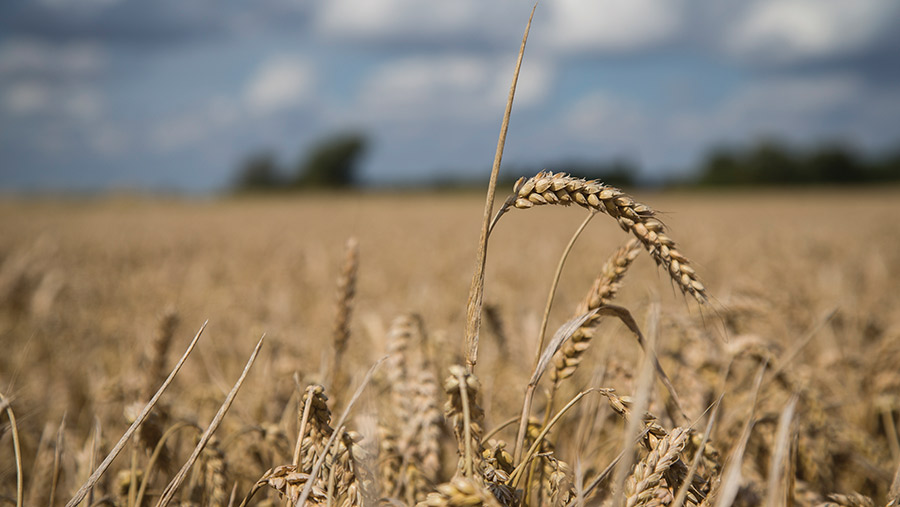Weather concerns push UK wheat futures above £200/t
 © GNP
© GNP Poorer weather on the Continent and in the US has supported global grain markets during the past week.
Tightening global supply forecasts and adverse weather have helped drive up spot prices for UK feed wheat to £175/t on 21 June, up from £160/t when prices bottomed out in early June.
Looking ahead to new-crop stocks, November UK feed wheat futures pushed back up to £206/t at midday on Wednesday 21 June.
See also: Final decision on grain passports due by December
In the US, about 50% of winter wheat is in an area experiencing drought, according to the US Department of Agriculture, with 18% facing either an “extreme” or “exceptional” drought.
Cefetra grain origination manager Simon Wilcox said the emphasis for markets has been on the US corn belt and the dry weather pushing up US futures, but traders were still seeing very cheap Russian wheat and cheap product out of South America.
In Europe, production has been revised down, with French consultancy Stratégie Grains reducing its EU soft wheat production estimate by 1.3m tonnes for the 2023-24 crop year to 128.7m tonnes.
Mr Wilcox said prices were being driven primarily by weather, with concerns about the weather in northern Europe turning the markets round from the bearish position they had been in for some time.
“We had been in a period, up until this weather kicked in, where Russia had done very well exporting a record crop and Australia had done well exporting a record crop. The forecast from those regions now is significantly down from last year.”
Black Sea
Some support remains in the market due to the continued uncertainty of the Black Sea grain export deal.
Volumes of food being transported through the corridor have dropped to the lowest level since it opened last summer due to slow inspections.
Just 1.3m tonnes of food was exported through the corridor in May, a significant fall from the peak of 4.2m tonnes in October 2022, according to the United Nations.
Global wheat markets are expected to remain volatile in the build-up to the 17 July deal renewal date.
There are concerns about what the Black Sea region might produce, added Mr Wilcox, with Ukraine still an unknown in terms of how much they are going to be able to harvest and put into the global market.
Grain trader ADM reported that Russia is predicting a 10% rise in all agricultural exports for the 2023 season.
Milling wheat premium
Spot prices collected by Farmers Weekly for milling wheat averaged £241/t on 21 June, a £66/t premium to feed wheat.
Mr Wilcox said: “The premium for milling wheat in the UK is not quite as high as it was, but there is still a decent premium to be had.
“I think it needs to be at a decent level in order to justify the cost people have incurred.
“The fact is, if they have gone for milling wheat, they will have invested quite heavily in expensive fertilisers and foliar applications to generate good-quality grain.”
